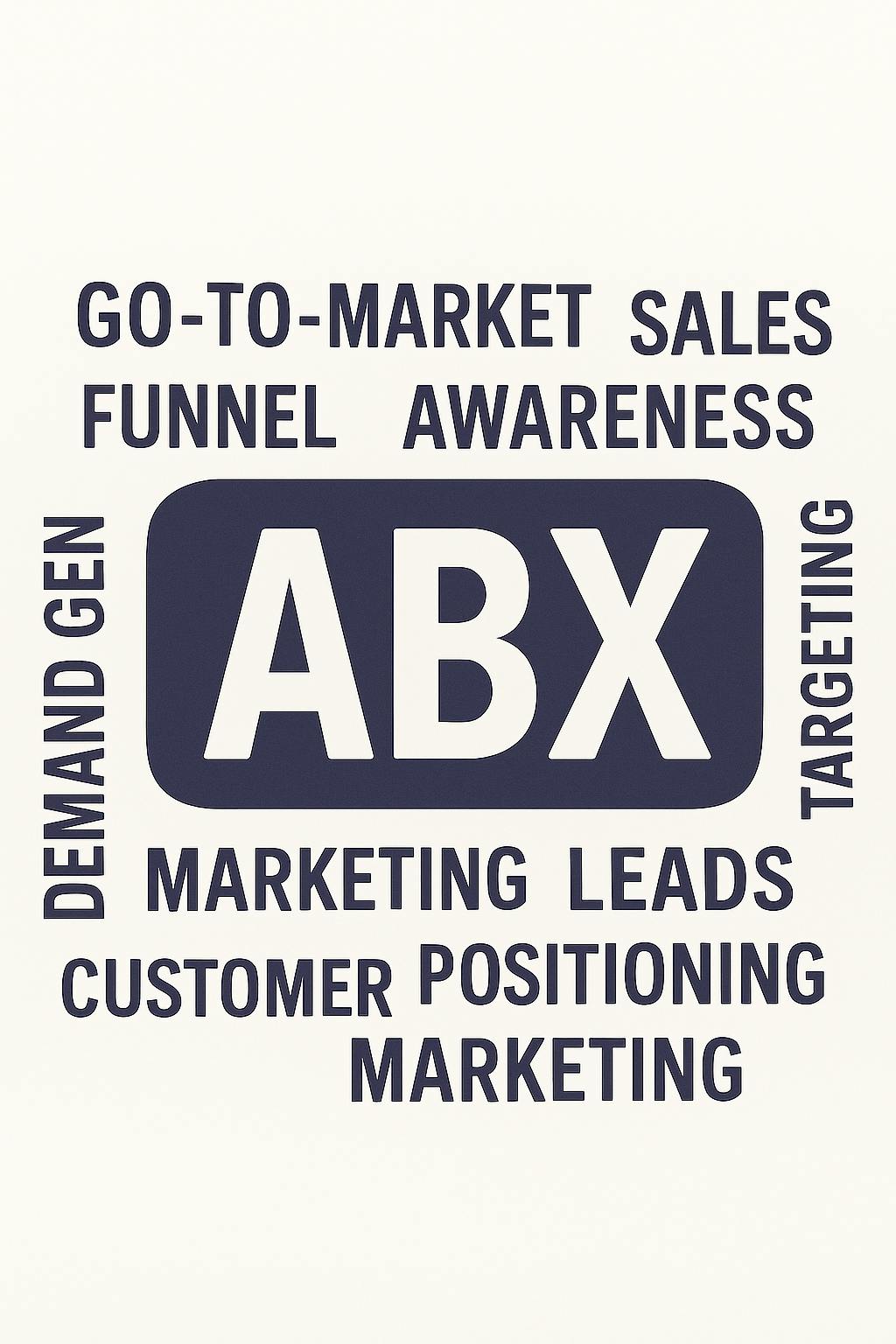
What is Account-Based Experience (ABX)? The Complete Guide to Modern GTM Success
Traditional Account-Based Marketing (ABM) has served B2B companies well, but the landscape is shifting.
Today's buyers expect more than targeted campaigns—they want seamless, personalized experiences that feel authentic at every touchpoint. This evolution has given rise to Account-Based Experience (ABX), a strategy that's transforming how companies approach their highest-value accounts.
The difference isn't just semantic. Companies implementing ABX strategies report lower customer acquisition costs, higher revenue per account, and significantly improved retention rates compared to traditional ABM approaches. The question isn't whether to evolve your account-based strategy—it's how quickly you can adapt.
How is ABX different from traditional ABM?
Account-Based Experience goes beyond the campaign-focused approach of traditional ABM. While ABM typically operates in silos—marketing runs campaigns, sales handles outreach, customer success manages retention—ABX creates a unified experience across all these touchpoints.
Think of traditional ABM as a series of targeted interactions, while ABX orchestrates a comprehensive journey. When a prospect visits your website after receiving a personalized email, views a demo, and later speaks with your sales team, ABX ensures each interaction is personalized and builds naturally on the previous one rather than feeling disconnected.
This integration addresses one of ABM's biggest limitations: the disjointed experience that occurs when different teams work with different objectives and KPIs. ABX aligns everyone around the buyer's experience rather than individual departmental goals.
Why is traditional ABM no longer enough in B2B?
Modern B2B buyers conduct extensive research before ever speaking with a sales representative. They expect the same level of personalization they receive as consumers, but many ABM programs still rely on broad targeting and generic messaging.
Consider a software company that segments accounts by company size and sends the same sequence of emails to all "enterprise" prospects. This approach ignores the specific challenges, buying stage, and individual preferences of each account's decision-makers. The result is often low engagement and missed opportunities with high-potential accounts.
Traditional ABM also struggles with attribution and measurement. When marketing, sales, and customer success operate separately, it becomes difficult to understand which activities truly influence account progression and revenue growth.
How does ABX use intent data for targeting?
ABX transforms how companies identify and engage with accounts by leveraging real-time intent data. Instead of the "spray-and-pray" approach that characterizes much of traditional marketing, ABX uses specific buyer signals to guide engagement strategies.
This precision targeting works like "spear fishing" rather than casting a wide net. When intent data reveals that a target account is actively researching solutions in your category, ABX triggers coordinated responses across marketing, sales, and customer success teams.
For example, a cybersecurity company might detect that a target account is researching "zero-trust security architecture." ABX would coordinate personalized content delivery, sales outreach timing, and product demonstration focus to align with this specific interest, creating a more relevant and timely engagement.
AI and machine learning enhance this approach by analyzing buyer behaviors and predicting future actions, allowing teams to proactively address prospect needs rather than reactively responding to explicit requests.
What metrics should you track for ABX success?
ABX requires different metrics than traditional marketing approaches. Instead of focusing primarily on lead quantity and campaign performance, ABX emphasizes account engagement, pipeline impact, and customer lifetime value.
Key metrics include:
- account engagement scores (interaction depth, touchpoint frequency, etc.),
- pipeline progression rates (how quickly accounts move stages),
- revenue per account (business impact of personalized experiences).
Multi-channel dashboards provide comprehensive visibility across various touchpoints, enabling real-time optimization of account strategies. The goal is understanding which combinations of activities most effectively influence account progression and revenue growth.
Customer feedback loops become especially important in ABX, as the strategy's success depends on delivering experiences that genuinely resonate with target accounts. Regular feedback collection and analysis help refine approaches and identify new personalization opportunities.
What results can you expect from implementing ABX?
Organizations that successfully implement ABX see alignment across sales, marketing, product, and customer success teams that fundamentally changes how they engage with accounts. This alignment creates more consistent experiences for buyers while improving internal efficiency and collaboration.
The personalization that ABX enables drives stronger customer relationships, leading to higher retention rates and increased expansion opportunities within existing accounts. Companies often find that their customer acquisition costs decrease while average deal sizes increase, creating a powerful combination for growth.
How do you implement ABX at your organization?
Implementing ABX requires securing executive buy-in and fostering cross-departmental collaboration from the start. The strategy's success depends on breaking down traditional silos and aligning teams around shared account objectives rather than individual departmental goals.
Beginning with pilot programs allows organizations to test ABX techniques and refine approaches before full-scale implementation. Start with a small number of high-value accounts where you can closely monitor results and gather feedback for optimization.
The key is starting with clear objectives, aligned teams, and the right technology infrastructure to support coordinated account experiences. Focus on accounts where personalization will have the most significant impact and where you have sufficient data to create meaningful customization.
What technology does ABX require?
Successful ABX implementation requires integrated technology that enables coordinated experiences across all customer touchpoints. This includes customer relationship management systems, marketing automation platforms, intent data providers, and analytics tools that provide unified account views.
The technology stack should enable real-time data sharing between teams, automated workflow triggers based on account activity, and comprehensive reporting that tracks account progression across multiple channels and interactions.
What challenges come with moving from ABM to ABX?
The biggest challenge organizations face is overcoming departmental silos and resistance to change. Sales teams may worry about losing control over account relationships, while marketing teams might struggle with the shift from campaign-focused to experience-focused metrics.
Data integration presents another significant challenge, as ABX requires unified customer data across multiple systems and touchpoints. Organizations often discover data quality issues and inconsistencies that must be resolved before ABX can be effective.
Change management becomes crucial, requiring clear communication about benefits, comprehensive training programs, and gradual implementation that allows teams to adapt to new processes and technologies.
Ready to transform your account-based strategy?
The shift to Account-Based Experience isn't something you have to navigate alone. Our team specializes in helping B2B companies implement ABX strategies that drive measurable results—from improved engagement metrics to increased revenue per account.
Whether you're looking to evolve your existing ABM programs or build an ABX strategy from the ground up, we can help you break down silos, align your teams, and create the personalized experiences that today's buyers expect.
The businesses that adapt their account strategies now will be the ones leading their markets tomorrow—and we're here to make sure you're among them.








